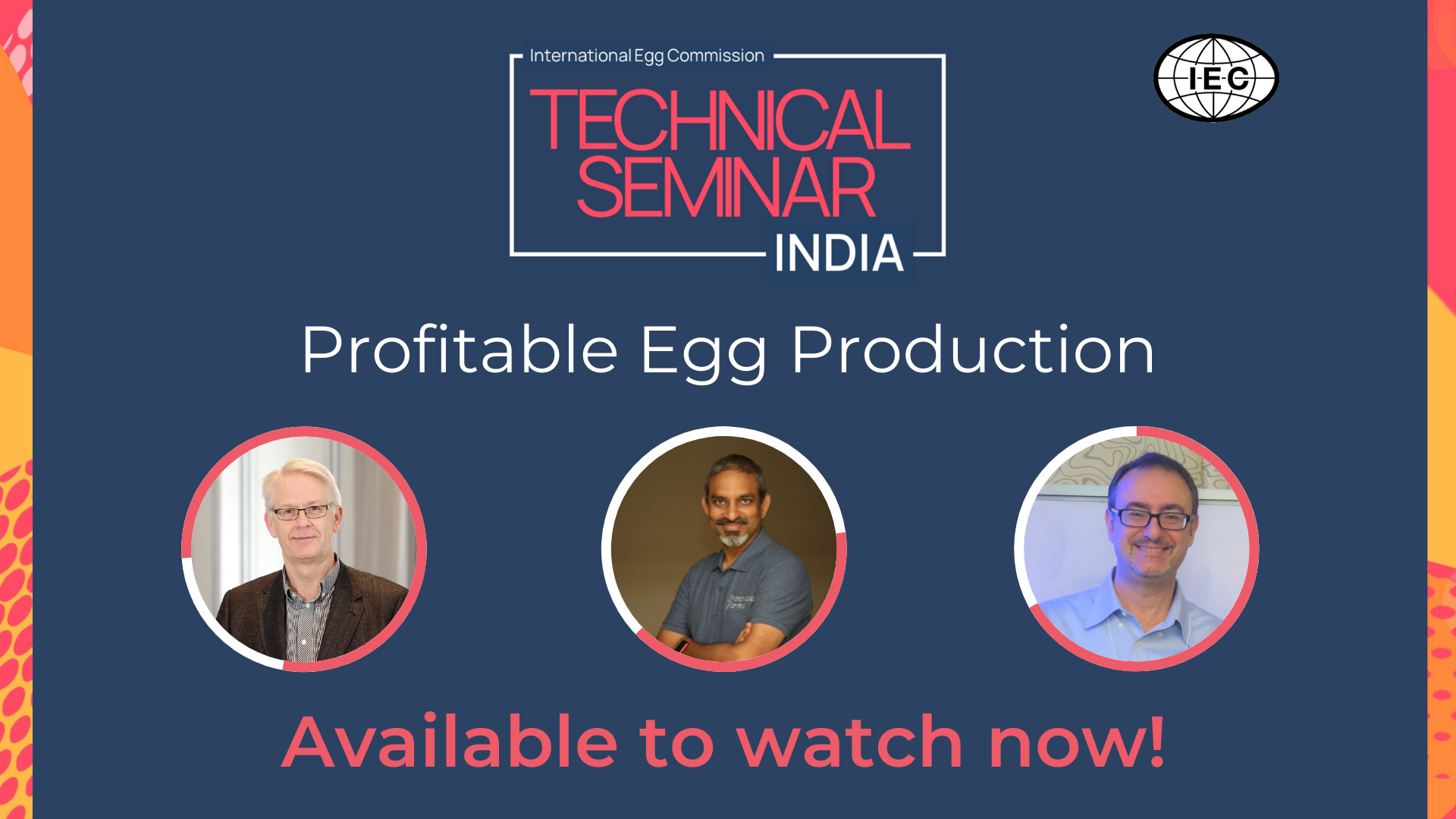Technical Seminar: India | Profitable Egg Production

In the latest Technical Seminar: India, hosted by IEC Chairman, Suresh Chitturi, Andrew Joret, Chairman of the British Egg Industry Council, and Kostas Stamatopoulos, Global Specialty Solutions Manager for Enzymes at DSM Animal Nutrition & Health, provided expert insights on how to improve layer efficiency and reduce waste.
This bespoke seminar, entitled ‘Profitable Egg Production’ presented methods for improving egg production practices in India, through improved biosecurity, better layer health, and enzyme technologies.
Key components of successful egg production
 In the first presentation of the session, Andrew Joret used his excess of 40 years’ experience in the egg industry to recommend practical ways of improving rearing and laying set-ups. He explored the key components of successful egg production and how producers can increase profitability and productivity within their farms.
In the first presentation of the session, Andrew Joret used his excess of 40 years’ experience in the egg industry to recommend practical ways of improving rearing and laying set-ups. He explored the key components of successful egg production and how producers can increase profitability and productivity within their farms.
Andrew highlighted the importance of good housing conditions during the rearing period: “If you get it wrong in rearing, there is no way that the egg farm can recover those eggs that are lost”. He added that a high level of biosecurity is needed, to reduce the risk of disease.
Recommendations to maximise productivity and minimise risks included; using single-age farms, introducing robust vaccination programmes, upholding regular feeding routines and employing empathetic caretakers.
One of the key challenges presented, particularly relevant to Indian producers, was the issue of heat stress, which can reduce feed consumption and egg size. Andrew highlighted that addressing this problem is another key component of successful production and provided two methods where this can be addressed; establishing ‘hot weather diets’ that include more oil and carbohydrates, and modifying feeding routines to the night time when it’s cooler.
Watch Andrew’s full presentation to learn more.
Watch nowIncreasing production efficiency through improved feed management
 Following Andrew’s presentation, Kostas Stamatopoulos provided technical insights into feed enzymes and how they can be used to increase egg production, reduce costs, improve layer health and develop environmental sustainability.
Following Andrew’s presentation, Kostas Stamatopoulos provided technical insights into feed enzymes and how they can be used to increase egg production, reduce costs, improve layer health and develop environmental sustainability.
Kostas began by explaining how enzymes work and the way that certain types can specifically improve feed efficiencies and layer health when combined with raw materials: “Enzymes can convert normal feed into something far more beneficial.”
The expert illustrated how enzymes can help reduce feed costs, showing how the use of phytase, protease and NSP multi-enzyme with feed on a 10,000 layer flock could save 596,000 Rs ($8,000) per annum. He added that enzymes also offer strong side benefits related to layer performance, health and welfare.
In addition to their cost-saving benefits, the environmental sustainability of enzymes was addressed: “Greater adoption of feed additive technology is key in reducing the layer industry’s footprint – for feed efficiency, reducing waste and reducing reliance on soybean.”
Watch Kostas’s full presentation for more technical insights.
Watch now